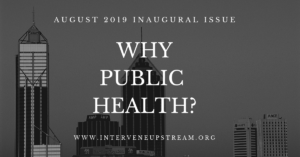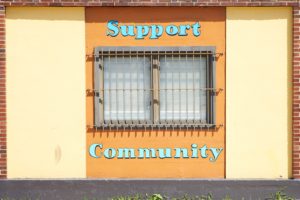Public health is a broad term, encompassing many dynamic fields with complex interactions that affect the well-being of a population. My interests in public health lie mainly within the area of mental health, a crucial component of well-being; while the medical establishment is (generally) placing more importance on mental health, it needs to be explored in greater detail.
My experience in research began in basic science, working in a microbiology lab. However, after I began volunteering at a women’s center in Vancouver’s Downtown Eastside , my career interests quickly shifted towards public health. Downtown Eastside is an area of Vancouver, Canada, with high rates of homelessness, substance use and poverty, as well as community-led action. The stories of resilience from the inspiring women I met at the center pushed me to pursue research in population health, and in particular, to become involved with community-based research.
Within this community-based research context, I began working on a project related to aging and HIV, much of which involved contacting community-based organizations to assess what services they offered to seniors living with HIV. Through these conversations, and independent conversations with people living with HIV (PLHIV), I learned that both social isolation and loneliness have a big impact on quality of life within this community. Older people living with HIV are particularly affected, due to loss of close friends and family during the early years of the epidemic. Though we have come a long way with the advent of antiretroviral therapies, issues beyond physical health need to be addressed to improve overall health and well-being for people living with HIV.
Researchers, healthcare practitioners, policy makers and other stakeholders need to place greater emphasis on the psychosocial components of health that affect our population. In other words, issues at the intersection between social and psychological determinants of health need to be examined to increase well-being. This includes analyzing social isolation – objective characteristics associated with being alone, such as living alone, not being in a relationship, living in a rural area, etc. – and loneliness – the subjective nature of feeling alone – in depth. Although often used interchangeably in colloquial language, isolation can occur without accompanying feelings of loneliness, and vice versa.
When considering social isolation and loneliness, we need to consider the complex web of factors that both lead to and are associated with these outcomes. Stigma and discrimination can preclude individuals from participating in and forming social networks, leading to increased susceptibility to isolation and loneliness. Populations potentially at heightened risk of isolation and loneliness include people living with HIV and other communities challenged by discrimination, such as people identifying as a minority sexual orientation and people who use injection drugs. That being said, isolation and loneliness are increasing within the general population as well, highlighting a trend that needs to be seriously considered.
Identifying folks at risk of experiencing a heightened burden of psychosocial determinants of health is only beneficial if we also focus on programming to mitigate these problems. Community consultation needs to be carried out to ensure that solutions are not only beneficial, but will be utilized. What works for one community may not work for another, and programming must be tailored to fully address needs.
So, why public health? It’s a unique field where you can both research what is affecting a population and work with stakeholders to design and implement creative solutions and positive actions to improve the overall well-being of a population. My beginnings in public health have grounded my interests in community-based research, which I plan on continuing in various contexts. Through knowledge gained during the next step of my education, I aim to be able to provide community-based organizations with the research needed to obtain funding and drive the establishment of programming to mitigate isolation and loneliness. I hope to ultimately lead the development of public health interventions, alongside frontline workers and community members, to ensure that programs implemented are relevant and appropriate for the target community.
- Why Public Health: Addressing Social Isolation, Loneliness - August 22, 2019





Pingback: Introducing Intervene Upstream: 2019 Inaugural Release » Intervene Upstream, the online peer-reviewed public health publication for graduate students